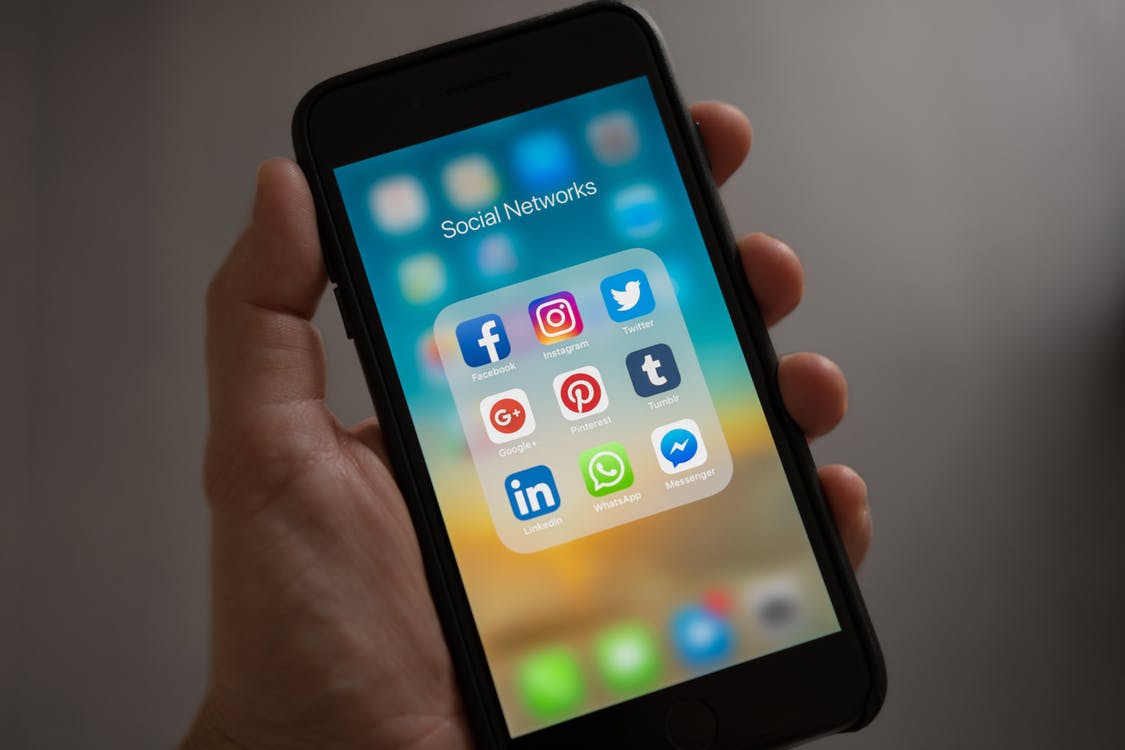In our ever-changing world, consumers expect a lot more from their customer...
Read more
 Published on 8th May 2017 by Gemma Harding
Published on 8th May 2017 by Gemma Harding
Does speaking on the phone fill you with dread? Do you find you excel in all areas of your job, but flail when it comes to telecommunications? Then our research shows that you are most likely aged between 18-24, and are otherwise known as a ‘millennial’.

We recently conducted a survey that showed almost one in three millennials do not use their mobile phones to make a call more than twice a week. Given that the age bracket are said to be tethered to their mobiles – nearly half check their phone in the middle of the night – speaking over the phone remains a weak spot.
We spoke to a number of industry-leading professionals to try and understand why this is. According to Rachel Carrell, CEO of childcare tech startup Koru Kids, this has been a particular issue within her company. She commented:
“It’s absolutely true that millennials are hesitant to talk on the phone. Our older nannies will call us – sometimes just to check we received something they emailed us – our younger ones will never call and will often not pick up the phone if we call them.”
Given that telecommunications are a vital aspect of most workplaces, it is clear that businesses need to be engaging their younger staff a little better. With this in mind, we spoke to a range of experts and industry professionals to get to the heart of why millennials find it so difficult, and how it can be remedied.
Now, far from adding to the tide of criticism often targeted at the millennial group, there is plenty that goes in their favour. Recently, for example, it was revealed that entrepreneurs aged 18-24 found more success by prioritising purpose over profit. This means that they are active in their communities and work hard for the economy. As a result, their turnover is 141% higher than businesses run by older generations.
Commenting is author and leading behavioural expert Richard Daniel Curtis. According to Richard, the discomfort felt by millennials and speaking over the phone is rooted in social media.
“For many millennials (Generation Y) and those that come after (Generation Z), the world is all about immediacy.
“Social media and messaging apps give them immediate answers, whereas a conversation can involve a great deal more time.
For example, it is socially acceptable to text the question “What shall we do next weekend?”, whereas when speaking this is surrounded by the formalities of a conversation: “How are you?”, “What are you doing next weekend?” and then followed by the question.”
Wider research certainly correlates with this statement. With students clocking the most mobile hours to Facebook and Spotify, it’s clear that more could be done to better acclimatise young people to telecommunications.
Because, while there may be other apps, there are jobs and whole industries that solely depend on clear, professional call answering.
We spoke a little more to Rachel Carrell, whose company relies in many ways on call handling. Rachel said:
“There are always things that are easiest dealt with in conversation. Especially as we are dealing with childcare, which is a people business, sometimes there’s no substitute for speaking on the phone.”
This goes for numerous other businesses too, across countless industries and sectors. Emails can only go so far. There is a need for young people to be adding phone skills to their repertoire, and fortunately it only takes a few simple steps…
Employers need to be laying down some guidelines for all employees, not just those of a certain age bracket. Guidance as to call handling processes and portraying professionalism over the phone is vital, whether you are talking to clients or colleagues.
Remember, you’re representing your company!
We got in touch with Shontel Reed, Customer Relations Manager at Tombola. Having employed countless staff and trained them to better conduct business over the phone, Shontel commented:
“When communicating with customers over the phone the most important thing is that staff are well educated about the company, its policies and use the appropriate tone e.g. it is always to be helpful and friendly. This will eliminate confusion with workers and will help to instill confidence in both employee and customer.
“The customer service team should also be familiar with all queries so that the customer only needs to speak with one person and not be placed on hold to be transferred to another team. As Tombola’s brand identity relies on community, we advise our CS team to adopt a friendly and informal tone, whilst still dealing with queries quickly and efficiently.”
Younger employees will be used to alternative methods of communication, and will likely find messaging a lot easier. Emails, too. Be accommodating and you should find them responsive, happy to work with and grateful for your co-operation.
Rachel Carrell continued:
“We have adapted our communications because of this – in addition to calling, we also text and use Whatsapp, and find that we get much quicker responses from younger nannies by doing so. We’ve even integrated this into our software systems, so that we have a record of these conversations all in one place.
“For a childcare company like ours, there are some advantages of texting and Whatsapp, such as the ability to keep a record of the conversation and also the ability to reply to a message asynchronously.”
It pays to be persistent, too. It’s often said that a habit takes around 60 days to set in, which is a relatively short time. With this in mind, we advise you to implement some universal greetings across the board, and maybe a few phrases for employees to have at hand.
It doesn’t need to be scripted, and it can still sound human.
Commenting is Peter Ames, Head of Strategy at office space providers Office Genie who asserts that practice makes perfect.
“Training is essential, particularly if you are a small business and phone duties are shared amongst people who might have little previous experience.
“It needn’t be overly-complicated, the key thing is creating a universal greeting that everyone knows – so you can be consistent at the very least. Ensure everyone listens and is as friendly as possible – this can be enough for many businesses.
“For a more advanced tip; knowing the phonetic alphabet (or at least a bit of it) can be very helpful. Particularly if it’s a bad line and you need to differentiate your Ms and Ns.”
Admittedly, a script can sometimes help. It mirrors real-life interaction with a more structured approach.
Student.com are a student accommodation provider that offers various housing solutions. We spoke to its Training and Quality Manager Borja Gomez to learn about their approach.
“Initially, it’s always helpful to make younger staff aware of the benefits of phone calls over other means of communication.
“New staff should also have plenty of opportunity to practise ‘offline’ with role play involving real-life scenarios. Scripts can help provide structure and guidance, although staff should also be given the freedom to develop lines they feel comfortable with.
“Offline practice should also be supplemented with ample shadowing time. Have new staff listen in to more experienced colleagues on the phone and then give them the opportunity to make calls supervised by a senior colleague who can offer feedback.”
These training techniques not only help to boost millennial confidence with phone calls, they improve customer service across the board. This is something CALLCARE has written about extensively. You can read one of our guides on the most sought after customer skills here.
Finally, to get some real-life millennial comment, we spoke to Verena Franco; a 19-year old Junior Account Executive working in PR and digital marketing. Verena has some valuable insight into the millennial’s relationship with phone calls.
According to Verena, it’s not so clear-cut:
“Personally, I use my mobile phone for social media and texting or WhatsApp, and I’d say most of my friends around my age would say the same. (I think this is also one of the reasons why home landlines are becoming extinct.) I also prefer talking on the phone with people I know well, such as my parents and close friends.
“I am currently studying digital marketing where I am encouraged to reach out to influencers on social media. However, working in PR means that calls are also necessary. To be honest, this is something I initially struggled with but got the hang of.
“Although speaking on the phone may be more personal and helps you get a feel of the kind of the person you are speaking to, I have found that most people prefer to be contacted via email so this is the main means that I with communicate at work.”
CALLCARE are industry experts, providing insight, knowledge and experience within our field. We offer remote switchboard and 24/7 call answering services, with competitive pricing and utmost professionalism. You can find out more about our customer service outsourcing here.